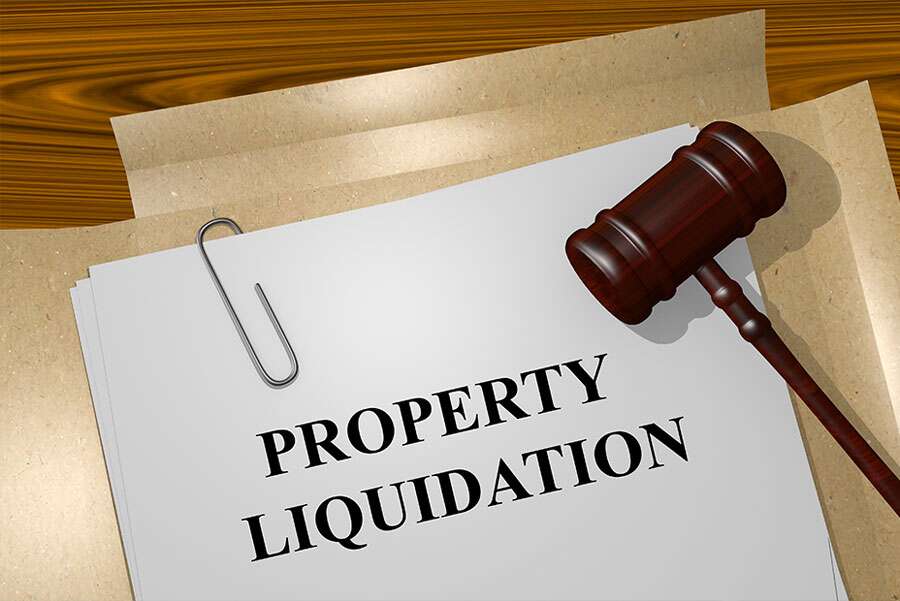Top Tips for Estate Property Liquidation
When you’ve inherited an estate or need to get rid of the property quickly, liquidating your assets can be a wise decision. Property liquidation could mean various things, but typically it involves selling off personal property, often due to circumstances such as inheritance, bankruptcy, or the need to downsize.
In this article, you will learn tips about estate property liquidation.

Understanding Property Liquidation
What Is Property Liquidation?
Property liquidation refers to the process of selling or disposing of assets or properties quickly, converting them into cash. This term is often used in the context of bankruptcy or when an individual is moving or downsizing. In the context of estates, it might mean selling off all personal property associated with a particular estate.
Why Property Liquidation?
There are many reasons to liquidate property: it could be due to the death of a property owner, a need to pay off debts, or just wanting to downsize. Moreover, it allows for the efficient distribution of assets among heirs and beneficiaries. It also quickly frees up cash tied in assets, which can be particularly helpful in situations of financial distress.
The Role of an Estate Liquidator
An estate liquidator is an essential player in this process. They are professionals who assist in selling off an estate’s assets, offering estate liquidation services that often include organizing, valuing, and selling the estate’s property. Their role also extends to ensuring that the entire process runs smoothly, relieving stress off the estate’s beneficiaries.
Navigating the Property Liquidation Process
Organizing the Estate
The first step in the process is to organize the estate. This involves taking inventory of all assets, sorting out valuable items from those that have lesser value. This is a crucial step as it gives a clear picture of what the estate holds.
Valuation of Assets
Next, the assets need to be valued. An estate liquidator can bring in experts to value various assets, from real estate to collectibles, ensuring that all items are priced appropriately for the market.
Marketing the Estate Sale
A significant aspect of property liquidation is marketing. The estate sale needs to be advertised to reach potential buyers. The estate liquidator will handle this, using their expertise to ensure the sale gets a good turnout.
Selling the Property
Finally, the estate liquidator will help liquidate the property or sell off the assets. This could be through an estate sale, an auction, or direct sales, depending on the situation.
Top Tips for Estate Property Liquidation
Be Proactive
The process can be overwhelming, but being proactive can help. Start by organizing the estate and understanding the worth of various assets.
Work with Professionals
An estate liquidator can be invaluable during this process. They can help organize, value, and liquidate assets, taking the burden off your shoulders.
Preserve Value
Try to maintain the condition of valuable items. This can help preserve their value and ensure you get the best price for them.
Market Effectively
Marketing is key to a successful estate sale. Make sure the sale is well advertised to attract a good number of potential buyers.
Be Prepared for a Long Process
Property liquidation is not always quick. Be patient and prepared for the process to take some time.
Conclusion
Property liquidation can be a complex process, but with the right planning and help from professionals, it can be made easier. It’s important to be proactive, preserve the value of assets, market effectively, and be prepared for the duration of the process.
FAQs About Property Liquidation
An estate liquidator helps in organizing, valuing, and selling off the assets of an estate.
The time taken for property liquidation depends on the size of the estate and the value of assets. It could take a few weeks to several months.
While it’s possible, it’s often advisable to seek the help of estate liquidation professionals to ensure a smooth process and a fair value for the assets.
A combination of online and offline advertising, including social media marketing and posting ads in local newspapers, usually works best.
Keep items in good condition, store them properly, and ensure they are well-presented during the sale to maintain their value.







